The premise (and the practice) of film criticism has always fascinated me.
Although I have never felt confident to venture into that field myself, since I fancy myself of being from the industry – and I also believe it requires a lot of hard work to be able to aptly evaluate the work of other people.
But now that I am blogging (and this necessary evil is now more than a year old) I thought I should take this opportunity to clarify a few questions that I have on film-scholarship (or film-journalism) in general; to improve on my own expressions, largely, with writers I look up to.
For that, the first name that came into my mind was Shoma A. Chatterjee.
I simply adore the way Shoma-di writes – and the things she writes about. It might be my long association with film-makers like Ananya Chatterjee and Ishani K Dutta who make gender oriented documentaries; it might be my sense of pride in the fact that some of my work has featured in her book on Indian Documentaries – ‘Filming Reality’; or it might just be because she appreciates the writing skills of my dear university batch-mate Nishi Pulugurtha – a brilliant travel-author and an awesome friend.
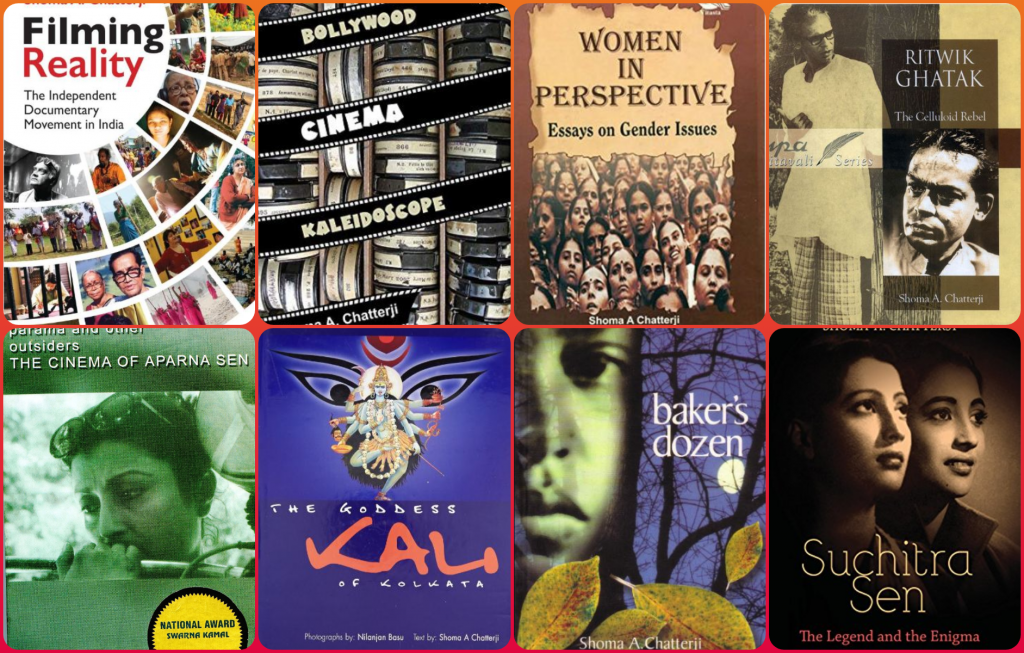
Or it must just be because Shoma-di is a prolific writer with a deep research orientation – and I have often referred to her books and articles on Cinema and Gender during the course of my work – across my career path.
It’s like when I collect a bunch of articles on a particular topic, it’s her pieces that catch my maximum attention, and are the most relatable and useful for me.
She has close to 25 published titles, by the way.
Anyways, it felt right that I should ask her first – a bit about what inspired her to take on film-writing? Did it happen to her, or did she make it happen?
Gender was a vacant space when Shoma-di started her career.
She found her niche, and over the years, that and her love for cinema came together. So from her first book on the topic – Subject Cinema, to Parama and the Cinema of Aparna Sen to the Woman at the Window – on Charulata – it’s been a long and fantastic journey for her – and her followers.
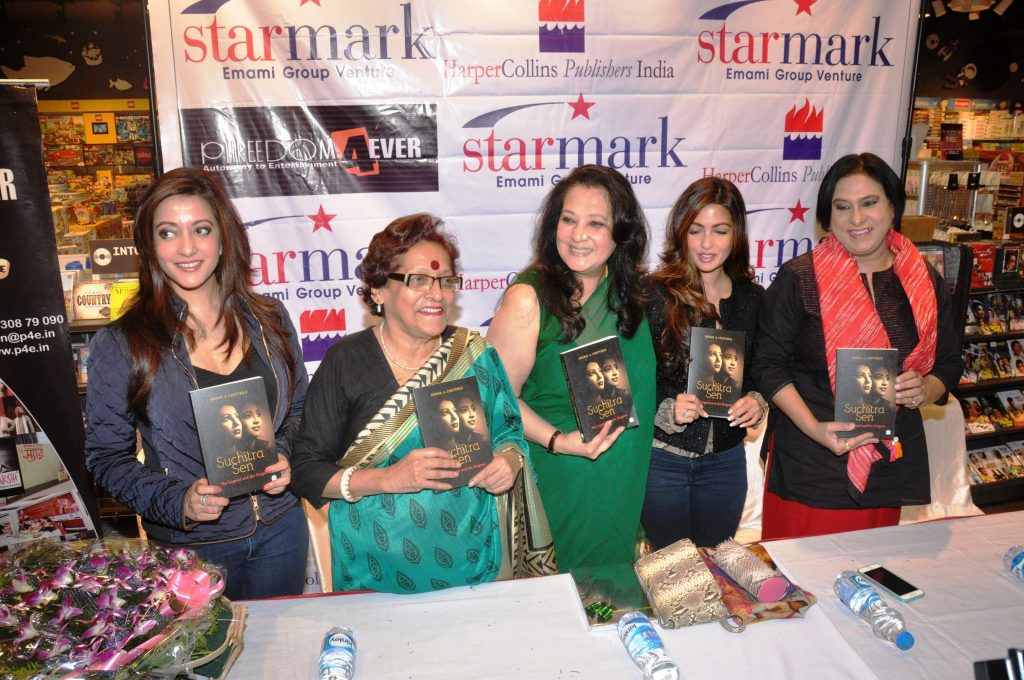
The fact that she feels intensely about what she writes comes out so beautifully – that you, as a reader, start relating to it personally.
This ‘feeling’ aspect in her writing helped me gather courage to ask her a daring question – what purpose does film-criticism serves – at all?? In other words – makers make films; viewers view it – why do we need film critics in between??
I don’t really know how far ratings and reviews determine the box-office performance of a film – I have a strong feeling that whatever critics might be saying – if a film is well made and crafted with a lot of heart – it usually reaches its intended audience. At least I want it to.
I also had this grudge whenever some critic gives a poor rating to a film – but that’s probably because I am on the other side of the fence.
I believe even so called bad films take lots of efforts to be made – and there’s always something good in a film like that. For me it can’t be defined as black and white – there are 50 million shades of grey – so how can you give ratings or stars to a film in any case!!
Shoma-di agrees with me – it’s tough; and she also clarifies how the ‘ratings’ system works – at least in her case.
Up next, a question that I had to ask!
About an area on which I had some ‘impressions’ – since I spent over 15 years in hard-core news and advertising media. More so since I wrote ‘Brokering News’ in 2011.
That was probably the first documentary on the subject of Institutional Paid News – lots of skeletons toppled out of the closets on that one. Sometime soon, I will talk to its director Umesh Agarwal, and create a post around that.
I should also write about my own work sometimes (grunting in glee).
And also because during my stint as a business journalist, I often faced ‘the’ question myself. Should I, or should I not accept those ‘gifts’ – in lieu of a good review of a bad product, or a not-so-deserving better coverage in media.
I admit, sometimes, those gifts were too lucrative to refuse. Human follies!!
So I asked Shoma Di – a veteran who has seen through the various phases of our industry and who belonged to a time that has seen different ethical standards in journalism – have you ever been offered ‘gifts’ to give positive reviews?
It was lovely to know that Chidananda Dasgupta was one of her mentors.
I did have the opportunity to attend some of his lectures when I was a Film Appreciation student at the Calcutta University Film Club – his erudition and ability to go deep into the context of a film and yet making it simple enough for dummies like me to understand has stayed with me – all these years.
Eminent film scholar Chidananda babu directed as many as seven films during his lifetime. The only one I have seen is ‘Amodini’ – featuring both his daughter Aparna Sen and granddaughter Konkona Sen.
It was a bit complex for me to understand, but that’s my immaturity.
Anyways, this brings me to my next question – most film -writers do not make films, or partake in any aspect of the creative process of film-making – is that desirable? Or is that a conscious decision, to stay non-partisan and neutral?
Not everyone can strive to be Satyajit Ray. Or even Chidananda Babu. They donned multiple hats with equally aplomb, and were exceptions that prove the rule. And they were not film-critics per say, but path-breaking thinkers on Cinema.
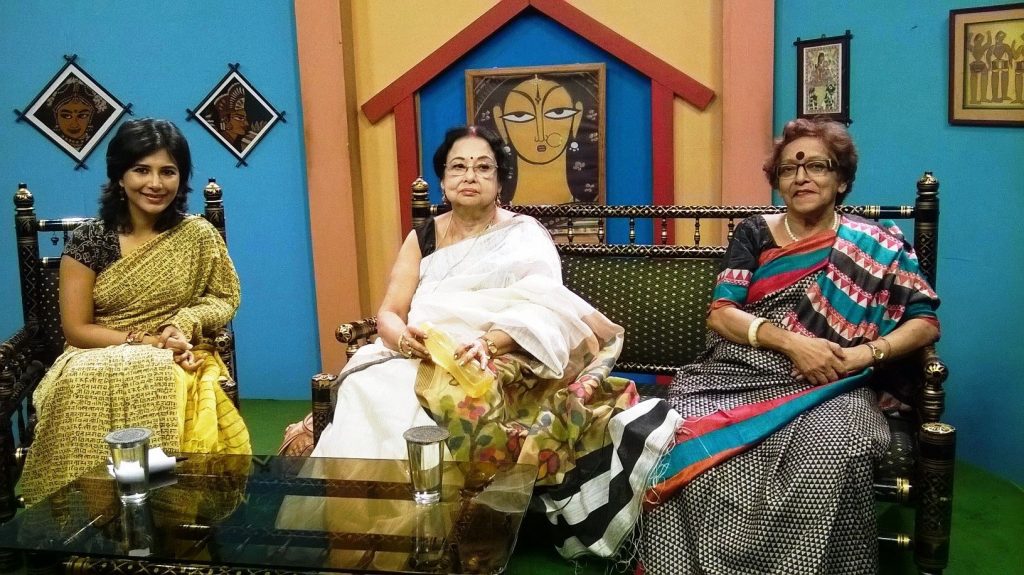
Now coming back to our original topic, it also often occurs to me that there must be a rising demand for film and TV writing in the market – what with all these OTT platforms coming in, and film-writing also finding its pride of place in digital platforms.
Which brings me to my next query – like a course on Film Appreciation, can there be a course designed specifically for Film Criticism? I asked Shoma-di – is it at all possible (or desirable) to teach ‘film-criticism’ academically?
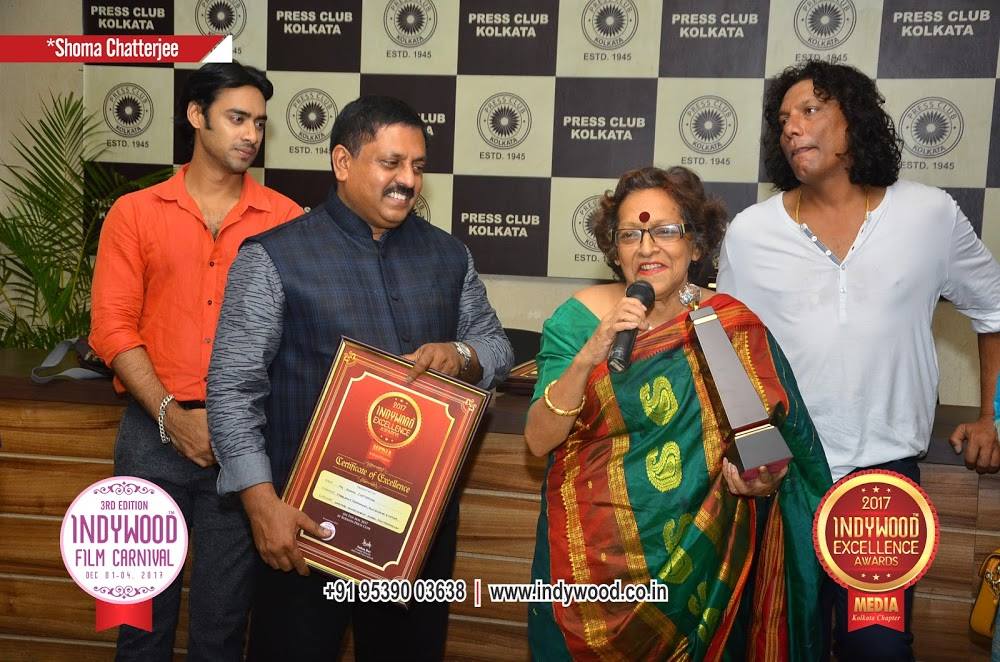
Well, Shoma-di did mention that she liked my blog piece on ‘Madathy’.
Much of that write-up was inspired by her article on Leena’s film.
Shoma-di’s insight was a great help in understanding, enjoying and appreciating the feminist perspective of the film – despite my natural disadvantage of not being a female.
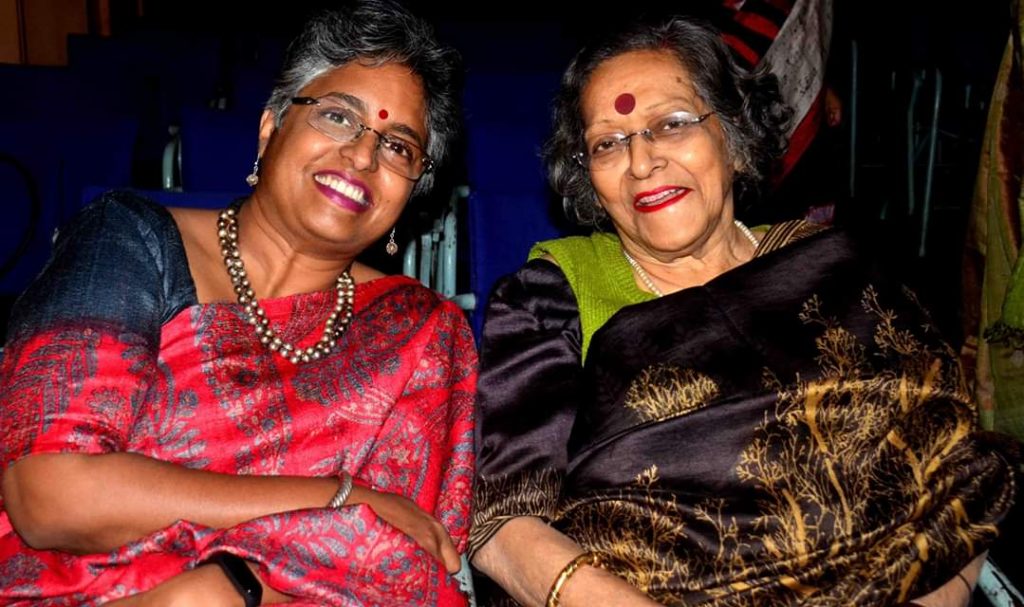
And Deepti Pillay Sivan, my dear friend, let me take this opportunity to tell you that she also loved our film on Shankar Mahadevan – ‘Decoding Shankar’.
Since I know you are an avid reader of my blog, I would rather say you should now give me that long awaited interview on the making of that film.
I will be waiting.
Let me also tell you, my readers, that I have decided to treat this sojourn with film-journalism as a series – and Shoma-di was the first among the seasoned writers and scholars of Cinema that I have approached. Very soon, I will bring you the views of Bhardwaj Rangan, eminent film-journalist, based out of Chennai. He has also been a major influence for me.
There will be others too. Watch this space.
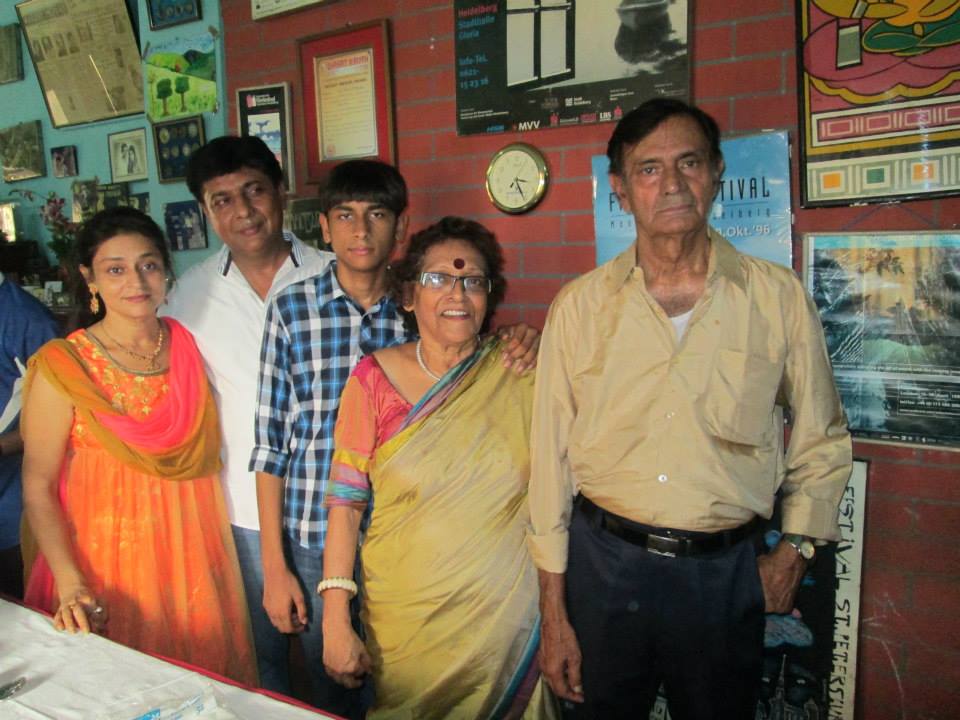
From left to right, that’s Ellora, her husband Amit, grandson Ishann, Shoma -di and her husband Ajoy.

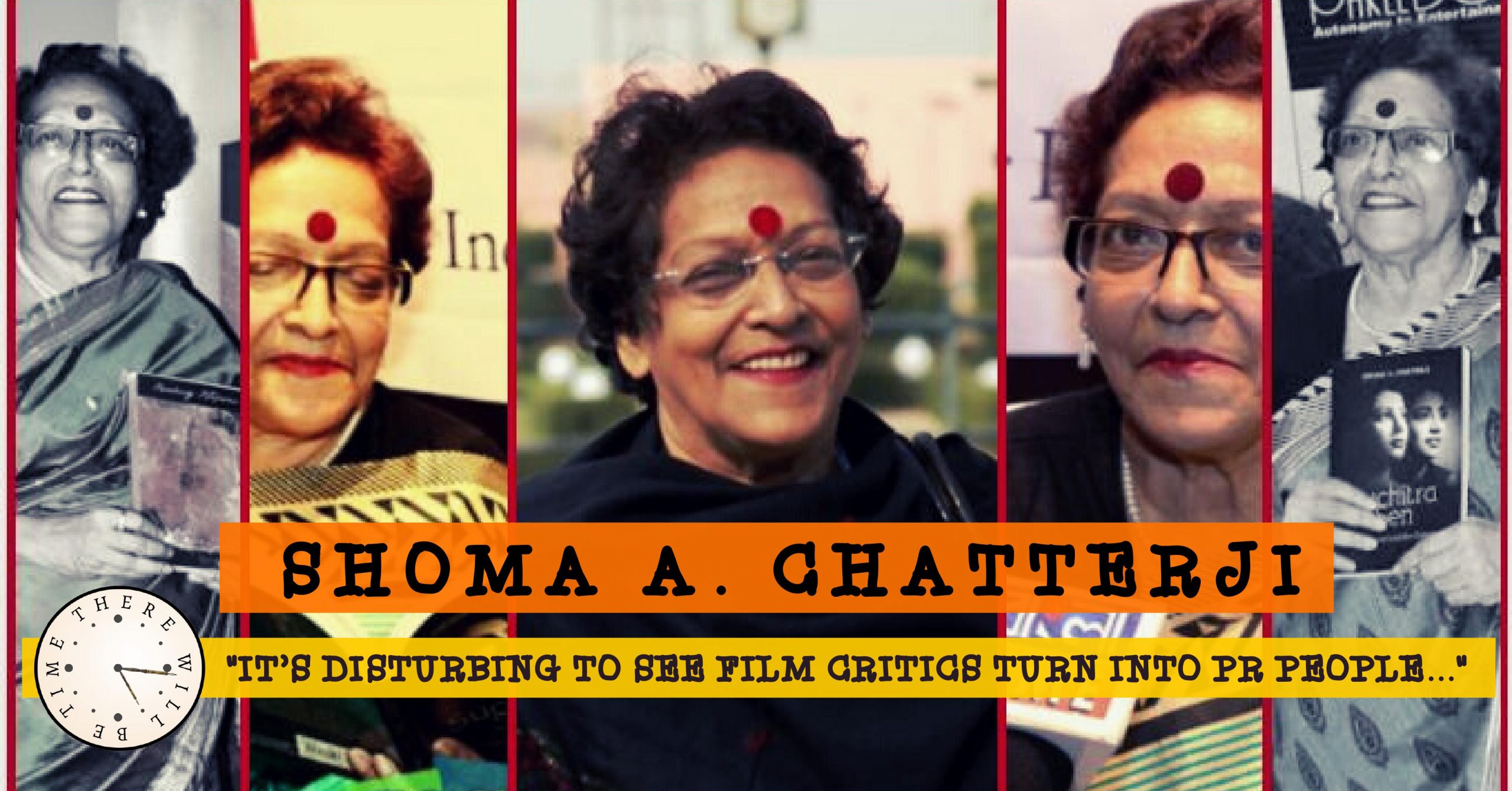
Enjoyed reading this. I like Shoma Di’,s work and have been reading her work on films for many years now. I first read her articles on film in The Statesman.
Really interesting!
looking forward too the next one.
I am overwhelmed by the way you have researched my career for so long and with so much width and depth. Thank you very much for this long tribute and I am not sure whether I deserve it or not.
The pleasure was entirely mine Shoma di. Just keep writing and inspiring us.